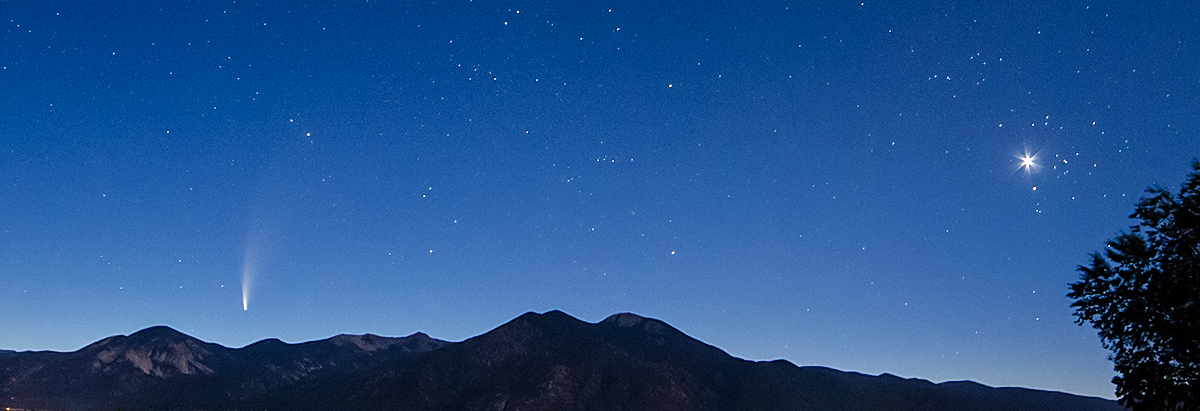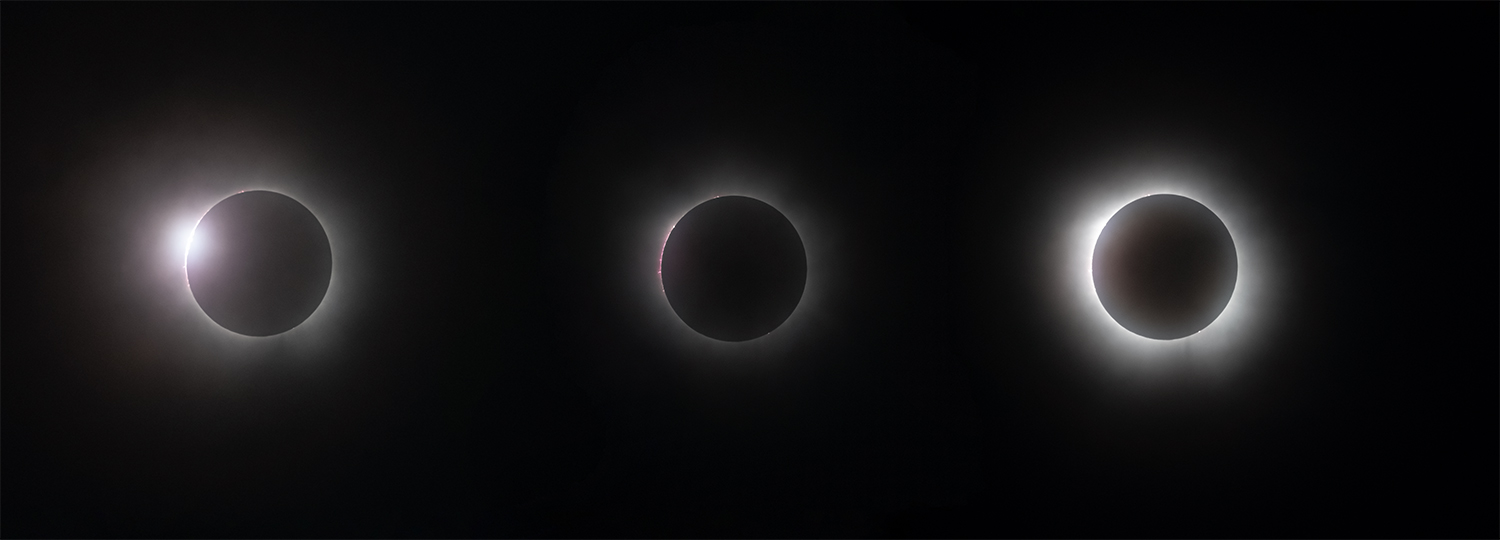
Welcome to taosastronomer.com!
offering
local "hands-on" observing
(visual and imaging) sessions and instruction
viewing and imaging from Rabbit Valley Observatory
a dark sky location on the mesa just west of Taos, NM
Astro-images of Lawrence Greiner [copyright Rabbit Valley Observatory/Willis Greiner, 2024 -- all rights reserved] |
2024 Total Solar Eclipse as witnessed from the Hill Country near Fredericksburg, TX -- April 8, 2024 |
 |
Total Solar Eclipse Composite -- all solar images ©Lawrence Greiner, 2024 |
| This composite was completely shot and post-processed by Larry. After that, he allowed me to post-process some of the original images as below, all shot in RAW format on a Nikon D3500 camera attached to his 70-300 telephoto, shooting at 270mm. Generally, it is unwise to fiddle with the camera during totality -- as such, he generally had one of his children hit the button on the laptop he captured the images with. |
please click on selected images below to view a larger version and a more detailed description, often with external links
Partial Eclipse In |
Diamond Ring #1 |
1/40th second -- ISO 400 @ f/6 -- 270mm efl through solar filter post-processed using Adobe Lightroom, Photoshop CS6, and Topaz Labs AI software.
|
1/40th second -- ISO 400 @ f/6 -- 270mm efl, no filter, post-processed using Adobe Lightroom, Photoshop CS6, and Topaz Labs AI software. |
During the lead-up to totality we had mixed weather and many clouds. During clearer moments a large group of sunspots were visible. |
Diamond Ring #2 |
Chromosphere |
1/40th second -- ISO 400 @ f/6 -- 270mm efl, no filter, post-processed using Adobe Lightroom, Photoshop CS6, and Topaz Labs AI software -- same image as above, but post-processed differently.
|
1/40th second -- ISO 400 @ f/6 -- 270mm efl, no filter, post-processed using Adobe Lightroom, Photoshop CS6, and Topaz Labs AI software -- all of these images were shot with the same data -- but more sophisticated post-processing techniques and the dimming of the clouds allowed for such a slow shutter speed to work!
|
Prominences #1 |
Corona |
1/40th second -- ISO 400 @ f/6 -- 270mm efl, no filter, post-processed using Adobe Lightroom, Photoshop CS6, and Topaz Labs AI software -- all of these images were shot with the same data -- but more sophisticated post-processing techniques and the dimming of the clouds allowed for such a slow shutter speed to work! |
1/40th second -- ISO 400 @ f/6 -- 270mm efl, no filter, post-processed using Adobe Lightroom, Photoshop CS6, and Topaz Labs AI software -- all of these images were shot with the same data -- but more sophisticated post-processing techniques and the dimming of the clouds allowed for such a slow shutter speed to work! |
Prominences #2 |
Partial Eclipse Out |
1/40th second -- ISO 400 @ f/6 -- 270mm efl, no filter, post-processed using Adobe Lightroom, Photoshop CS6, and Topaz Labs AI software -- all of these images were shot with the same data -- but more sophisticated post-processing techniques and the dimming of the clouds allowed for such a slow shutter speed to work! Here, please note the differences in this image and the one above. As the Moon moves across the Sun during totality, different Prominences become more obvious. The bright one on the bottom of this image was so obvious it could be seen with the naked eye!
|
1/40th second -- ISO 400 @ f/6 -- 270mm efl, through solar filter, post-processed using Adobe Lightroom, Photoshop CS6, and Topaz Labs AI software -- all of these images were shot with the same data -- but more sophisticated post-processing techniques and the dimming of the clouds allowed for such a slow shutter speed to work! |
click on most images above for larger view and detailed description |
click on most images above for larger view and detailed description |
click on some images above to view larger versions and specific imaging data / larger versions accessed will link externally to interesting additional information on solar eclipses.
|
|
To correctly and accurately view images such as those seen on this website, it is important to adjust your computer or device's monitor to the neutral gray scale above. First of all, every sector seen above should appear to be shades of a neutral gray -- gradually moving from black to white -- further, each segment should be independently visible, not "oozing into" one another. When your device is correctly calibrated (not so difficult) you will be able to view the images as they were created and intended to be seen. |
(all content copyright 2015-2024 Willis Greiner Photography, all rights reserved)